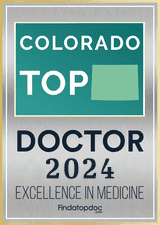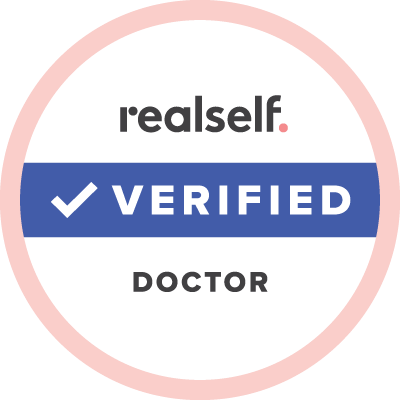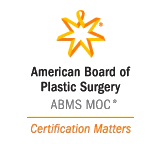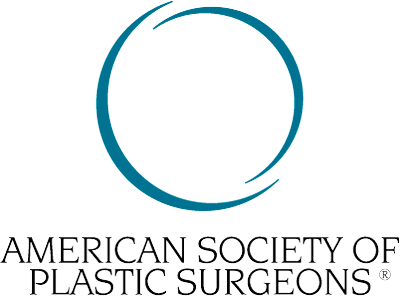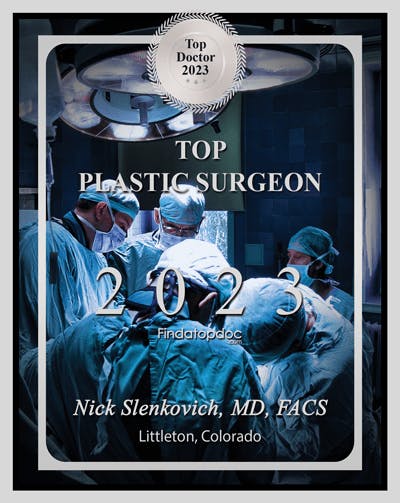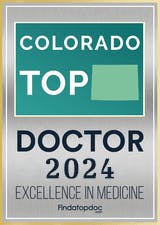How does sunscreen work?
Sunscreens work by using chemical and/or physical active ingredients. Physical ingredients can include zinc oxide or titanium oxide, and these work by reflecting or scattering ultraviolet (UV) radiation. Chemical ingredients, such as avobenzone or oxybenzone, work by absorbing UV radiation and then dissipating it as heat.
Which ingredients are used in EltaMD sunscreens?
All EltaMD sunscreens use zinc oxide, which is a natural, mineral compound. Zinc maintains its protective ability in the sun, which makes it more photostable than some chemical ingredients that may degrade. Zinc works by reflecting and reducing the broadest range of UVA (aging) and UVB (burning) ultraviolet rays. This broad-spectrum protection helps protect skin against burning, sun-induced early skin aging, and the risk of skin cancer.
Why do you recommend zinc sunscreen?
Zinc oxide is a natural mineral that is safe even on the most sensitive skin, including post-procedure skin and even that of children 6 months or older. Zinc works by blocking UVB (burning) and UVA (aging) rays that have been linked to photoaging and skin cancer.
Why do I need broad-spectrum sunscreen?
Sunscreens that protect skin from both UVA (aging) and UVB (burning) rays can be labeled as broad-spectrum products. The FDA measures sunscreen protection by comparing its UVA protection relative to its UVB protection. Products must pass the FDA tests before they can carry the label “Broad-Spectrum.” Using broad-spectrum sunscreen protects your skin from both kinds of ultraviolet rays instead of only protecting against the burning rays.
What does SPF mean?
The SPF value of sunscreen tells you the level of sunburn protection from UVB (burning) rays. The FDA tests SPF by measuring the amount of UV radiation exposure it takes to cause a sunburn when using sunscreen compared to how much UV exposure it takes when not using sunscreen. Higher SPF values (up to 50) provide greater sunburn protection. SPF values only indicate a sunscreen’s UVB (burning) protection. However, sunscreens that pass the test for broad-spectrum labeling have shown that their UVA (aging) protection is proportional to UVB protection. This means that broad-spectrum sunscreens with higher SPF values for UVB rays will also provide a higher level of protection from UVA rays. Labels that have “Broad-Spectrum SPF __” indicate a higher level of protection from both UVB and UVA rays.
Does broad-spectrum sunscreen help prevent skin cancer and early skin aging?
Only sunscreens that meet the requirements for broad-spectrum protection with an SPF rating of 15 or higher can claim to provide greater protection, which includes reducing the risk of skin cancer and early skin aging if used as directed with other sun protection measures. Broad-spectrum SPF products with SPF values higher than 15 provide greater protection and may claim additional uses. Only broad-spectrum sunscreens with an SPF value of 15 or higher can claim to reduce the risk of skin cancer and early skin aging if used as directed with other sun protection measures. Sunscreens with broad-spectrum SPF between 2 and 14 or sunscreens that do not meet the broad-spectrum requirements can only claim to help prevent sunburn.
When did the FDA change labeling tests for sunscreen?
In the summer of 2012, the FDA made changes to the way sunscreen is labeled and advertised. Prior guidelines for sunscreen were focused almost exclusively on UVB protection to prevent sunburns. There were no guidelines to address UVA protection, which contributes to skin cancer and early skin aging. The FDA determined they could establish a broad-spectrum test based on scientific advances to include both UVB and UVA protection. Passing this broad-spectrum test shows that the sunscreen provides UVA protection that is proportional to UVB protection. Sunscreens that pass the broad-spectrum test with a Broad-Spectrum SPF 15 or higher rating can claim to help reduce the risk for skin cancer and early skin aging (when used with other sun protection measures), in addition to protecting against sunburn.
Why is sunscreen labeled as water-resistant and not waterproof?
The new FDA guidelines established in 2012 also eliminated the terms “waterproof,” “sweatproof,” and “sunblock” from sunscreen labels because these terms can overstate the effectiveness of sunscreen products. They also limited claims of providing sun protection for more than 2 hours without reapplication or providing instant protection after application. No sunscreens are “waterproof” because they all eventually wash off. Water-resistant sunscreens can only include this claim if they are tested and meet FDA guidelines. They must also include labeling on the front to indicate how long the sunscreen remains effective after swimming or sweating. Standard testing is for 40 minutes or 80 minutes. Sunscreens that do not meet these tests must include directions to use water-resistant sunscreen if swimming or sweating. All sunscreens must provide directions on when to reapply.
What are the other protective measures I should use combined with broad-spectrum sunscreen?
To reduce the risks for skin cancer and early skin aging, it is recommended to use a broad-spectrum sunscreen rated SPF 15 or higher in combination with other protective measures, including:
- Limiting the amount of time spent in the sun, especially between 10 am – 2 pm when the sun’s rays are the strongest.
- Covering skin exposed to the sun with clothing when possible, such as long-sleeved shirts, pants, sunglasses, and broad-brimmed hats.
- Using a water-resistant sunscreen if swimming or sweating.
- Reapplying sunscreen at least every 2 hours, even if it’s water-resistant sunscreen.
Do any EltaMD sunscreens have the Skin Cancer Foundation Seal of Recommendation?
Yes, the Skin Cancer Foundation Seal of Recommendation has been earned for all EltaMD lotion and cream sunscreens and UV Aero spray sunscreen as effective UV protectants.
Do EltaMD sunscreens help prevent skin cancer?
Yes, all EltaMD sunscreens are classified as broad-spectrum. FDA guidelines state that using broad-spectrum sunscreen with an SPF rating of 15 or higher combined with other sun protection measures reduces the risk of skin cancer and early skin aging.
Protect Your Skin
If you would like to learn more about the right sunscreen to protect you and your family, contact us today.






